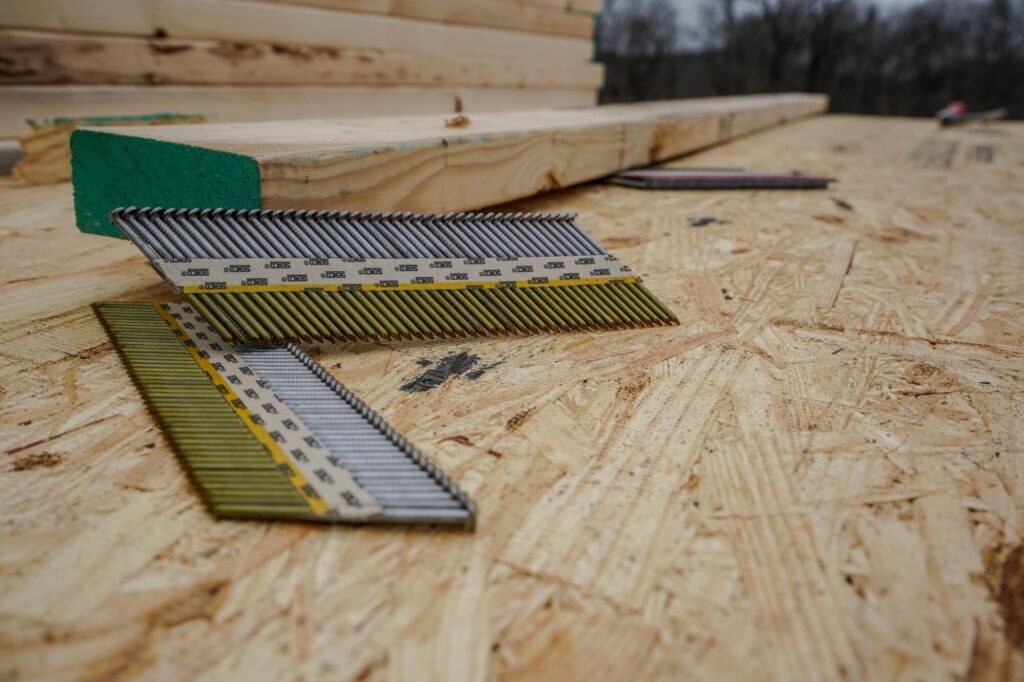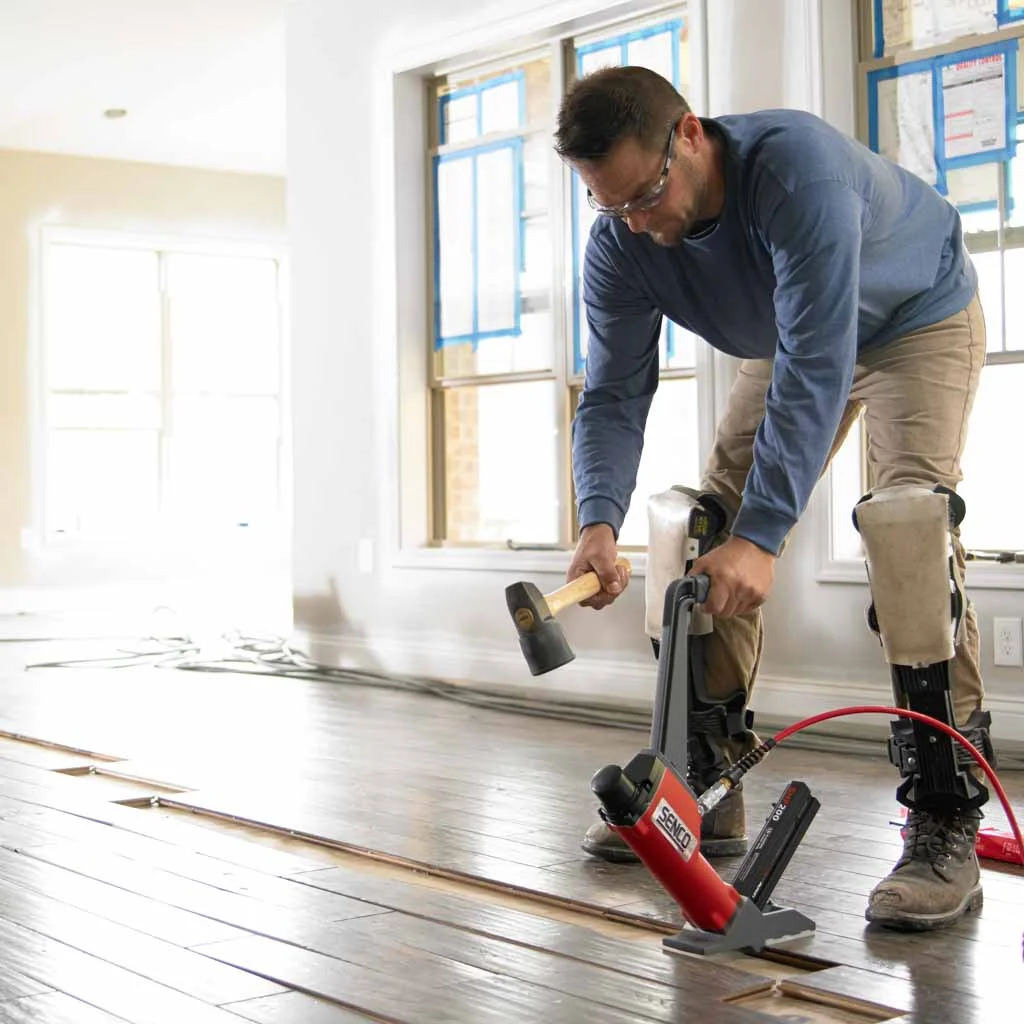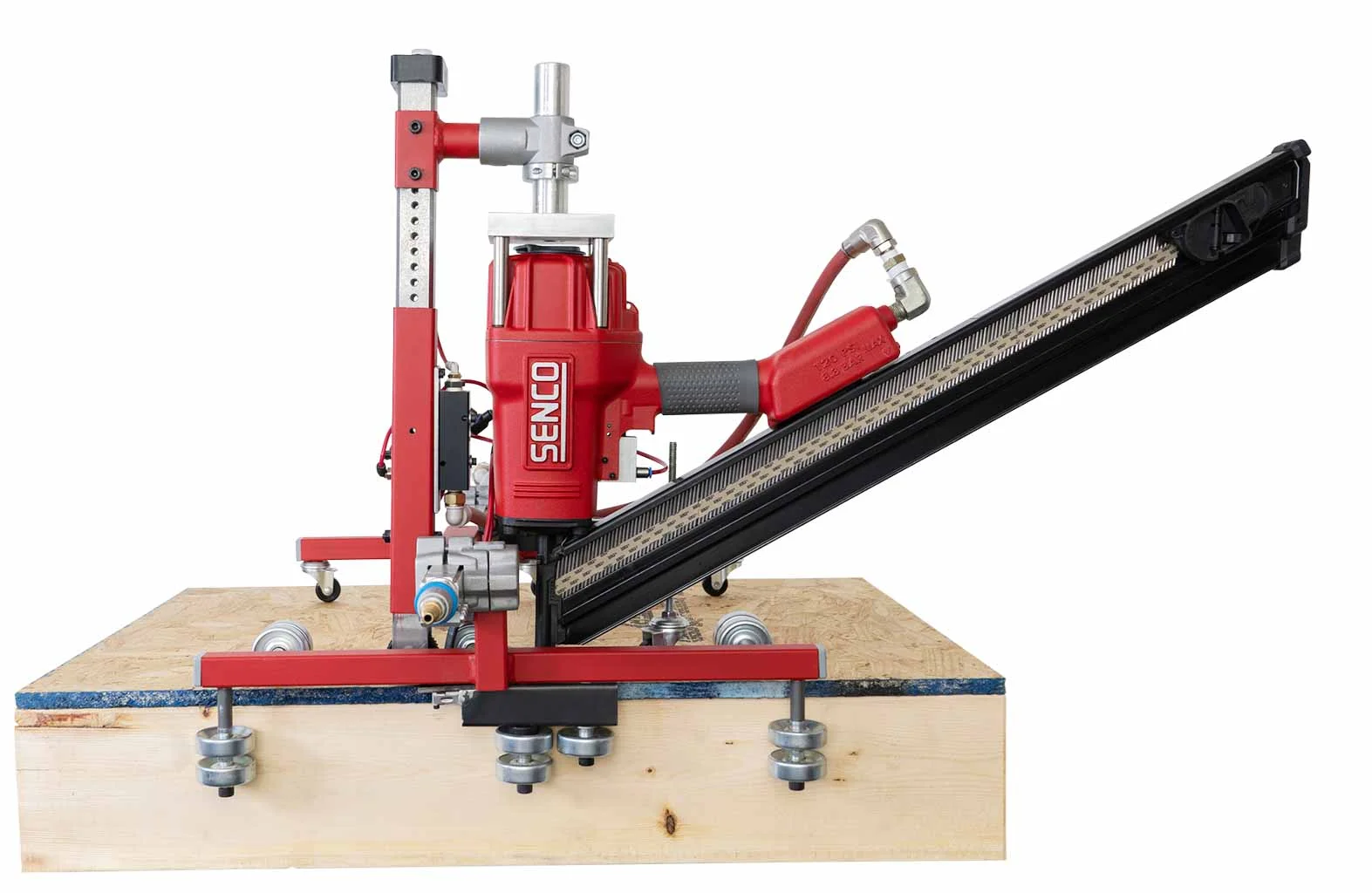What You Need to Know About Outdoor Fasteners

Outdoor nails, screws, and staples help keep your structure standing.
For outdoor jobs such as building a deck, installing windows, or constructing a fence, the fasteners you use can make or break your project. This guide explores various exterior fasteners, including stainless steel, galvanized, aluminum and coated nails, screws, and staples, to help you choose the best outdoor fastener that extends the life of your structure.
Why do I need exterior nails?
Rain, snow, high humidity (especially in coastal areas), and UV rays from sunlight can cause fasteners to pit and corrode, compromising their holding power and the structural integrity of your project. Exterior fasteners are specially manufactured to help keep your structure standing against the elements.
Interior fasteners are typically made of uncoated, polished steel. They are affordable and provide a long-lasting hold – as long as they’re not exposed to harsh environments. Exterior fasteners are made to resist the elements , either by using corrosion-resistant metals or through special platings and coatings. The raw materials used and additional manufacturing steps are the reason exterior fasteners typically cost more than indoor fasteners, but that upfront investment can add decades to the life of your structure.
The Most Common Types of Outdoor Fasteners
Aluminum: Lightweight and Rust-Resistant
When exposed to air, aluminum forms a protective oxide layer that prevents corrosion. This quality makes aluminum fasteners great for outdoor applications that require rust resistance. They are commonly used for light- to medium-load applications like doors, windows, or siding. Aluminum fasteners are durable, especially in drier climates, but they may not be robust enough for more demanding applications in harsher environments.
Applications:
- Doors and Windows: Aluminum fasteners are commonly used to install exterior doors and windows, providing strength without adding unnecessary weight.
- Roofing and Siding: Aluminum nails are a top choice for installing protective material like shingles and siding.
Stainless Steel: High-Grade Corrosion Resistance
Stainless steel is engineered for rust resistance, making stainless nails, screws, and staples ideal for heavy-duty jobs that require more holding power than aluminum. There are two types of stainless steel fasteners commonly used for outdoor projects: stainless steel 304 and stainless steel 316.
Stainless steel 304 fasteners contain nickel and chromium, providing excellent corrosion resistance and making them suitable for drier climates. Stainless steel 316, also known as “marine grade” stainless steel, adds molybdenum to the mix, which provides superior protection against saltwater and humidity. These fasteners are highly recommended for coastal environments.
Common Applications:
- Fencing, Siding and Exterior Trim: Stainless steel 304 nails, screws and staples ensure a secure connection between boards and resist corrosion over time, so are ideal for typical exterior projects
- Marine Projects: Stainless steel 316 fasteners are the best option for docks, boathouses, or other structures exposed to saltwater or salty air.
Galvanized: Cost-Effective and Durable
Galvanized fasteners are coated with zinc to resist corrosion. They are less costly than stainless steel, but unlike stainless steel, they are not naturally rust resistant if the zinc coating chips or wears away. Hot-dipped galvanized fasteners have a thicker zinc coating than electro-galvanized fasteners, providing better rust protection and longevity.
Common Applications:
- Framing: Galvanized nails are excellent for wood construction, providing the shear strength of steel nails with added rust protection.
- Roofing: Galvanized roofing nails are a popular choice for high-volume jobs due to their balance between quality and affordability.
Coated Fasteners: Extra Protection for Harsh Conditions
Coated fasteners – typically screws – are similar to galvanized fasteners in that a coating is applied that protects the metal beneath from water intrusion. Screws coated with ceramics and polymers, such as black phosphate or epoxy, are especially useful for projects that require high corrosion resistance and a strong hold without the cost of stainless steel.
Common Applications:
- Pressure-Treated Lumber: Coated screws are ideal for use with pressure-treated wood, which can corrode standard fasteners.
- Decking: Coated screws hold boards securely without popping out over time like nails.
Choosing the Right Fastener for Your Outdoor Project
When selecting fasteners for your outdoor project, consider the materials you are working with, the climate, and the expected lifespan of the structure. Aluminum, stainless steel, galvanized, and coated fasteners each offer unique benefits that cater to different project needs. Choosing the right fastener is essential to ensure your outdoor project remains durable and weather-resistant for years to come.
SENCO’s exterior finish coatings feature a proprietary multi-layer coating technology designed to prevent corrosion. The combination of layers provides exceptional resistance to rust and corrosion with a clean finish surface, reduced drive torque, and variety of color choices. A spec sheet is available upon request.

